Press Releases
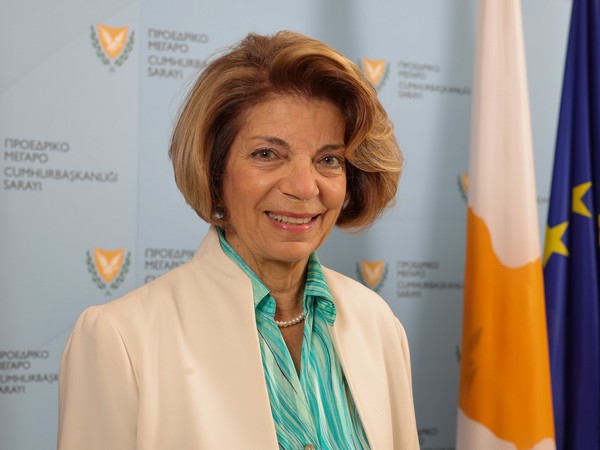
16-03-2023 20:19
Address by Health Minister Dr. Popi Kanari at the 2nd WHO Inter-Regional Meeting on the health of refugees and migrants
It gives me great pleasure in addressing you today on the occasion of the 2nd WHO Inter-Regional Meeting on the health of refugees and migrants. Our newly elected president His Excellency Dr Christodoulides also sends his warm greetings to you all. May I reiterate our pride in having the new WHO country office in Cyprus.
I would like to take this opportunity to outline best practices from the Republic of Cyprus regarding refugees and migrants’ health in action under some of the following action pillars agreed upon in the 1st high level meeting in 2022.
1.Ensure refugees and migrants benefit from Universal Health Coverage.
The Ministry of Health is an active key player in improving the general cohesion and efficiency of the migration management process. Through close collaboration with all the relevant authorities involved e.g., asylum services, police, judicial services and migration department, the Ministry of Health ensures that refugees /migrants and displaced persons are registered and have access to primary healthcare and mental healthcare services as well as secondary healthcare services within the State Hospital Services Organisation. Migrants/refugees who are assessed at primary care centres and are in need of further healthcare are referred to the relevant specialists within the State Hospital Services Organisation.
New arrivals at the migrant reception centres undergo assessment of their health needs and public health screening. A well-trained multidisciplinary team comprising of physicians, nursing officers, health visitors provide 24- hour primary care services at the migrant reception centre. Under the guidance, supervision and monitoring of the Unit for Epidemiological Surveillance and Control of Communicable Disease, new arrivals are screened for hepatitis B and C, Syphilis, HIV and Tuberculosis through Mantoux testing. Positive cases are referred to appropriate specialists for further treatment and management in line with the WHO guidelines on the treatment of communicable diseases. Contact tracing is also carried out for any positive cases reported. Increasing efforts are made to ensure adherence to treatment regimes e.g., for TB to reduce the risk of emergence of Multiresistent TB. Positive HIV cases are referred to a specialised centre in Larnaca and treatment is given by a multidisciplinary specialist team in line with international guidelines. The Unit for Epidemiological Surveillance of Communicable disease monitors closely the epidemiological data in cooperation with the healthcare team at the migrant /refugee centres.
Vulnerable groups e.g., unaccompanied children are also screened and cared for by the social services. Standard operating procedures have been implemented for the healthcare of migrants/refugees in accordance with national guidelines and evidence-based medicine.
Health visitors conduct regular checks for vaccine coverage of migrants/refugees and vaccinations are given at the reception centre according to the National Vaccination Scheme. Health information of migrants/refugees is documented on a newly developed digital platform to ensure that all necessary information is available to healthcare providers.
Potential victims of violence or torture are identified early and referred to appropriately trained healthcare professionals for a comprehensive assessment of their psychosocial needs and referral to the mental health services according to the findings of the assessments. Interpreters are made available during the initial interviews.
We are committed to providing high quality holistic person-centred healthcare to our migrant population and thus reducing health inequalities. Regular training and ongoing professional development for our health professionals caring for the migrant families is also a priority for the Ministry of Health.
2.Implement inclusive health emergency and disaster risk reduction policies and actions.
Migrants and refugees are included in our national disaster and risk reduction policies. It is worth noting that during the COVID pandemic, information was made available to migrants/refugees in many international languages. A robust system of free COVID testing was carried out by the Ministry of Health through designated stations throughout Cyprus and through mobile units. Any positive cases of COVID infection are isolated within the reception centres. Migrants/refugees in need of hospital care are transferred from the state hospitals to private clinics to reduce overcrowding.
We endorse all of the five pillars of action proposed during the first high-level meeting on migrant health; that is supporting universal health coverage, social inclusion, disaster management, strengthening health governance and developing partnership and innovative ways of working together. In order to achieve these, we need global solidarity, regional collaboration, sharing of best practices to work towards sustainable health financing structures. The establishment of a technical network of regional experts on migrant health would facilitate future interventions related to the five pillars for action.
I pledge that the Republic of Cyprus shall continue its efforts within the framework of our country’s capacity and capabilities to improve the health status of migrants and refugees in line with the Sustainable Development Goals of 2030. Cyprus will maintain this active regional role. In conclusion, I would like to wish you a productive and successful meeting that will pave the way forward for a robust regional response to protecting the health of migrant and refugee populations through political commitment and direct involvement of all partners in UN agencies and civil society.
(DC)
Relevant Press Releases
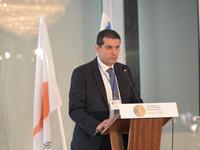
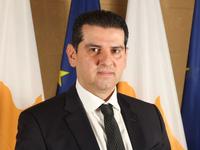
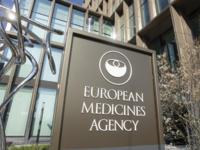
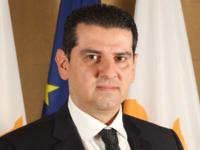

08-01-2024 11:39
Curriculum vitae of the new Minister of Health, Mr Michael Damianos


